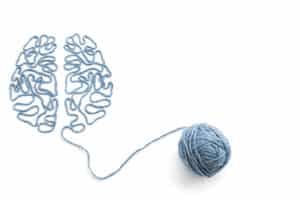How to Manage Anxiety without Medication
- Updated:

Living in today’s fast-paced world, it’s not unusual for many of us to experience bouts of anxiety. According to the National Alliance on Mental Illness, Over 40 million adults in the U.S. (19.1%) have an anxiety disorder. For instance, understanding the difference between social anxiety vs. avoidant personality disorder can provide clarity on the specific challenges faced by individuals.
Anxiety remains a pervasive challenge, Whether due to everyday stresses, traumatic experiences, or other underlying conditions. This concern doesn’t discriminate based on age or occupation; anxiety touches all demographics, from students overwhelmed by academic pressures to professionals facing workplace stress.
Understanding how anxiety affects the brain can provide deeper insights into coping mechanisms. But while medication is a common recourse, numerous strategies and treatments are available that don’t rely on it. Understanding how to manage anxiety without medication becomes pivotal for those seeking holistic, long-term solutions. In this guide, we delve into various non-medicated approaches to coping with anxiety, ensuring well-being and equilibrium in your life.
8 Strategies for Coping with Anxiety without Medication
The mind is indeed powerful, but sometimes, life’s stresses can become overwhelming. Anxiety disorder affects most people at different points in their lives. Whether you’re battling daily anxieties or confronting post-traumatic experiences, there are ways to address these challenges without solely depending on medication.
Develop a Routine
Routine can anchor our daily lives, providing a sense of stability and predictability amidst chaos. You can carve out moments of calm by establishing a daily routine that prioritizes self-care and activities that uplift you. This is especially vital for those in high-pressure jobs, like first responders, where unpredictability is the norm. Structured routines can help differentiate work from leisure, giving the mind a clear demarcation and time to refresh.
Embrace Flexibility
While routines provide structure, it’s equally crucial to embrace adaptability. Life’s uncertainties require us to be resilient, changing our approach as circumstances demand. Being open-minded and flexible about integrating new coping techniques or adjusting to unforeseen situations means you’re better equipped to manage stress. This can range from being receptive to trying out meditation for relaxation or swiftly adapting when unexpected challenges arise. Flexibility isn’t just about adjustment, but about growth and learning how to thrive amidst change.
Incorporate Fun
Amidst the hustle and bustle of daily life, it’s essential not to forget the simple pleasures that bring joy. Deliberately carving out time to engage in activities you love, whether it’s a serene walk in the park, diving into a captivating book, or enjoying a film, can act as a therapeutic pause. These moments of fun and leisure aren’t just distractions; they’re crucial for mental rejuvenation, helping reset and recharge your mind, ensuring you face challenges with a clearer, more joyous perspective.
Get Some Exercise
Exercise isn’t just beneficial for the body, but for the mind, too. The release of endorphins during physical activity can elevate your mood, making you feel better both immediately and over time. Moreover, regular physical activity can enhance sleep quality, a crucial aspect of mental well-being. In fact, studies indicate that individuals who engage in regular vigorous exercise are 25 percent less likely to develop depression or an anxiety disorder over a span of five years. This underscores the profound impact exercise can have in warding off mental health challenges.
Avoid Substances as a Coping Mechanism
Turning to substances might seem like a quick fix for immediate relief, but they often mask the root cause of anxiety and can lead to deeper complications over time. Regular dependence on such substances can exacerbate anxiety and introduce additional health concerns. If you find yourself leaning towards substances to cope, consider healthier alternatives and reach out to friends, family, or professionals for support.
Talk to Someone
Expressing your emotions and talking about your feelings can be therapeutic. For individuals in high-stress professions, such as first responders, the weight of daily experiences can accumulate. Finding a safe space, whether with trusted colleagues, friends, or a professional, is essential to discuss and process these emotions. Vocalizing your experiences can provide perspective and lessen the burden you carry.
Don’t Be Too Hard on Yourself
Everyone has their unique pace and method of dealing with anxiety. Understand that feelings of anxiety are natural reactions to certain situations. Rather than pushing these emotions aside or beating yourself up for feeling a certain way, take a moment to reflect on what’s triggering these feelings. Acknowledging them opens the path towards understanding and addressing them effectively.
Seek Professional Assistance
There’s no shame in reaching out for help when anxiety feels too overwhelming. Professionals like therapists and counselors are trained to provide guidance, coping strategies, and resources. They can offer a fresh perspective, tools, and techniques tailored to your unique situation, ensuring that you navigate your anxiety in a manner best suited to your well-being.
Treatment Options for Anxiety
Anxiety is a multi-faceted condition, so there isn’t a one-size-fits-all solution. Understanding that the right treatment approach for anxiety varies based on individual needs, circumstances, and severity of symptoms is crucial.
- Therapy: One of the most effective treatments for anxiety is therapy, especially cognitive-behavioral therapy (CBT). This approach focuses on identifying and challenging negative thought patterns, offering tools and strategies to cope better. Many people benefit from talking to a trained professional who can provide insight and coping mechanisms tailored to their experiences.
- Lifestyle Adjustments: Simple changes to one’s daily routine can have profound effects. This includes establishing routines, incorporating physical activity, ensuring adequate sleep, and maintaining a balanced diet. These adjustments not only help in reducing the intensity of anxiety but also in enhancing overall well-being.
- Mindfulness Practices: Techniques like meditation, deep breathing exercises, and yoga have been shown to reduce anxiety levels. They center the mind, foster a deeper connection with the present moment, and can offer relief from incessant worrying or overthinking.
- Alternative Therapies: Some individuals find relief through less conventional means like acupuncture, aromatherapy, or even art therapy. These modalities can provide a sense of calm, relaxation, and a break from the cycle of anxious thoughts.
Lastly, it’s essential to stress the importance of a support system. Engaging with loved ones, joining support groups, or seeking out communities that discuss topics like “Is Anxiety Considered Neurodivergent?” can make a significant difference. Always remember the journey to managing anxiety is personal. Explore various treatments, be patient with yourself, and find what resonates with your unique needs.
Treatment for Anxiety – Acera Health
If you or someone you know is grappling with anxiety, Acera Health stands ready to support you. With a comprehensive approach to mental well-being, we pride ourselves on offering a blend of traditional and innovative therapies to address anxiety’s diverse challenges. Our dedicated team of professionals is committed to understanding your unique journey and providing resources, support, and guidance tailored to individual needs. Emphasizing a holistic approach to wellness, we work diligently to empower our clients, ensuring they are equipped to face life’s challenges head-on. To discover more about our services or seek immediate assistance, please reach out to us at (949) 647-4090.
Share:
Related Resources

How Does Anxiety Affect the Brain?
How Does Anxiety Affect the Brain? Reviewed by: Melody Stone Anxiety is a prevalent and multifaceted mental health issue that touches the lives of countless

Is Anxiety Considered Neurodivergent?
Is Anxiety Considered Neurodivergent? Reviewed by: Melody Stone For many, understanding the realm of mental health can sometimes be like navigating through an intricate maze.

Difference Between Social Anxiety vs. Avoidant Personality Disorder
In today’s age, good mental health is increasingly recognized as an essential aspect of a balanced lifestyle. While discoveries about the brain are being made




